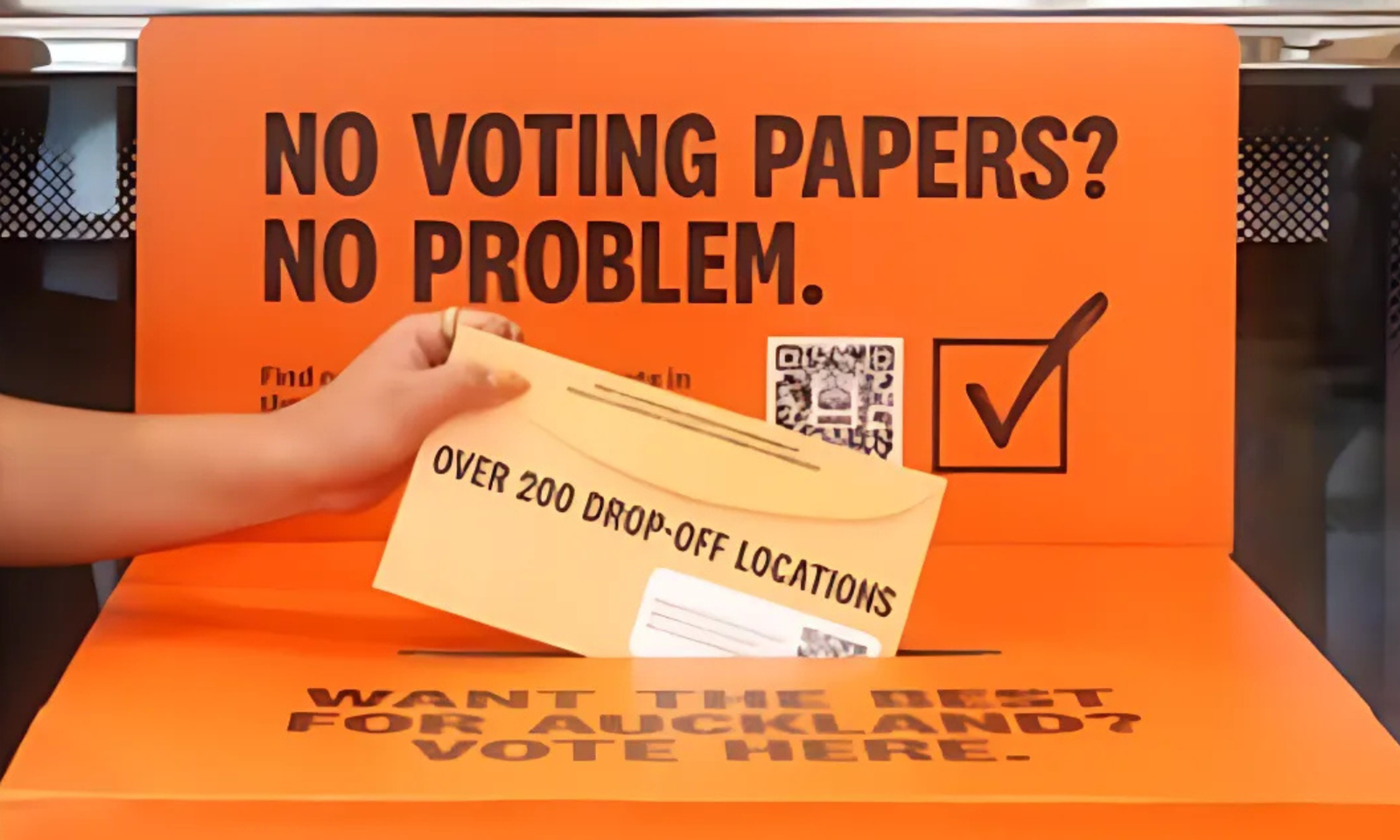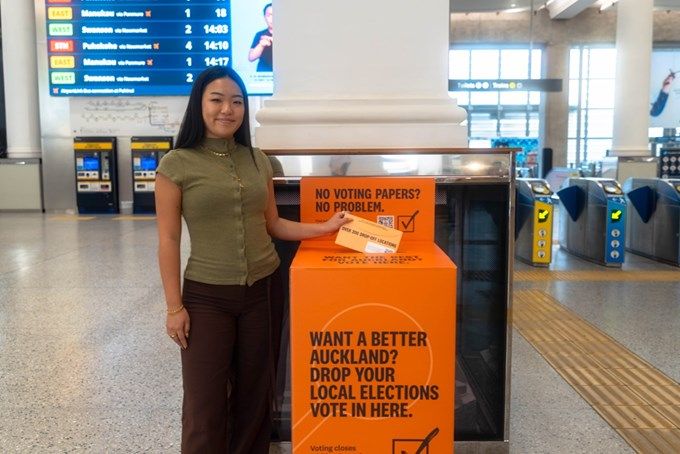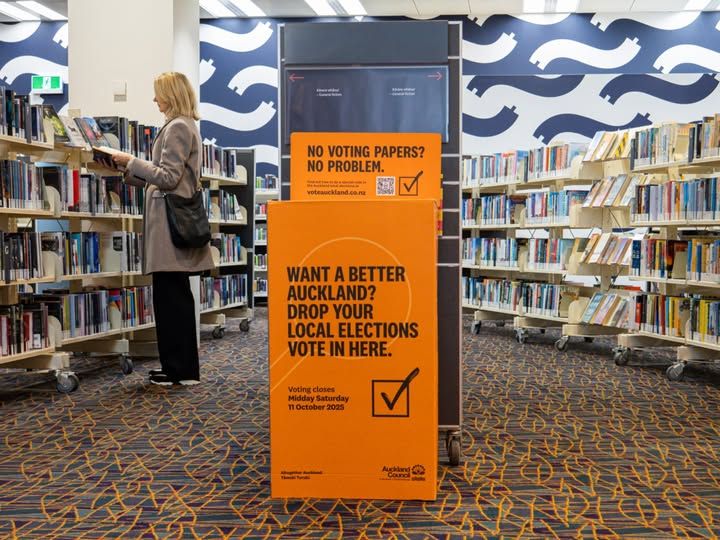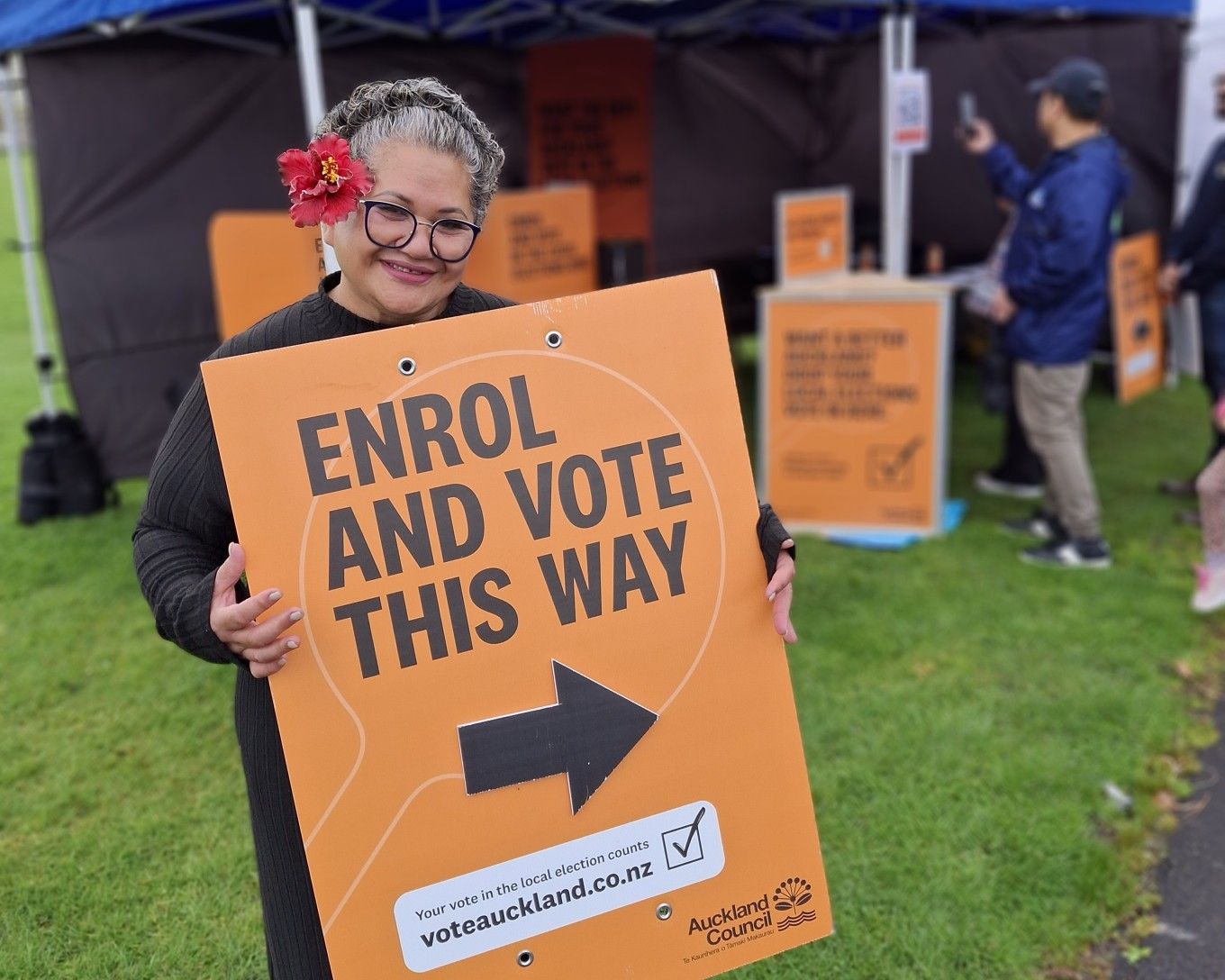

Ballot boxes across Auckland are open for voting paper returns.
Photo/Auckland Council
Manurewa election complaints prompt warning on vote integrity concerns
The electoral officer is cautioning voters about secrecy rules, ballot handling, and the risk of crossing from legitimate help into undue influence.



Respect, attitude and belonging: Brad Mika’s rugby values endure

‘Periodt. You did that’: Teen Siva Afi champion Emillie Pritchard’s cultural journey



Respect, attitude and belonging: Brad Mika’s rugby values endure

‘Periodt. You did that’: Teen Siva Afi champion Emillie Pritchard’s cultural journey
Concerns have been raised over election material circulated in Manurewa that allegedly urged support for a list of candidates, offered help with ballot papers, and was linked to community funding discussions.
The material was circulated through local churches and community networks, prompting complaints to the electoral officer and raising questions about vote integrity.
Principal Electoral Officer Dale Ofsoske confirms that several complaints were received and followed up directly with a phone call to someone connected with the matter on 19 September.
“The allegations of vote collection and delivery by others were put to him and denied. I did state that if he becomes aware of this type of activity, then this could be unlawful behaviour and should cease. Based on this conversation, with a denial, the matter has not been forwarded to the police,” Ofsoske says.
Ballot collection ‘unlawful’
The material allegedly offers to assist families in filling out their forms, and for completed ballot papers to be collected, to know how many votes came from ‘our community’.
Under section 123 of the Local Electoral Act 2001, it is unlawful for any person or group to obtain or possess voting documents belonging to others without their authority.

Ballot box at the train station makes it easier for voters to return their papers. Photo/Auckland Council
Offences can carry prison terms of up to six months for ordinary citizens, or two years for electoral officials.
“We discourage this type of activity by candidates or their assistants due to a perception that any votes collected could be interfered with,” Ofsoske says.
“In addition, a key principle in the Local Electoral Act is public confidence in people’s ability to vote freely and secretly. Any perception that might weaken confidence in the conduct of the elections should be avoided.”

Libraries are among the locations where voters can return their completed papers. Photo/Auckland Council
When help crosses into undue influence
Voters can legally be assisted if they are physically impaired, unable to read or write, or are unfamiliar with the language on the ballot. But Ofsoske says the law is clear that any attempt to coerce, pressure, or mislead voters is an offence of undue influence under section 127 of the Act, carrying penalties of up to two years in prison.
“Assistance becomes unlawful when it compels, induces or prevails upon an elector either to vote or to refrain from voting,” he says.
The material also referenced grant opportunities and support with funding applications, alongside a meeting with Mayor Wayne Brown, where a proposal for a Pacific Village Hub in Manurewa was presented.
While the Mayor’s office did not respond to a request for comment, Ofsoske noted that inducing a person to vote or refrain from voting by way of money or valuable consideration is illegal under section 125 of the Act.
Authorisation statement rules
Attachments circulated alongside the letter listed multiple candidates across mayoral, ward, local board and licensing trust contests, with instructions for voters to support them.
Ofsoske said these attachments appear to be electioneering material and therefore require an authorisation statement.

Signs at community events encourage enrolment and returning voting papers. Photo/Auckland Council
“Any advertisement that is used or appears to be used to promote the election of a candidate must be authorised in writing by the candidate or their agent. An authorisation statement should be shown,” he says, noting that he has not seen or translated the attachments to confirm.
If material is found to be missing an authorisation statement, the first step is to contact the candidate to ensure future compliance.
The Manurewa Action Team, whose candidates were endorsed in the attachments, says it did not authorise the letter. Brian Blake, the group’s sole authoriser for electoral promotions, told Local Democracy Reporting he had not seen or approved it.
‘I did not authorise any letter nor would I authorise third parties to speak on our behalf,’ Blake says. He suggested contacting the writer directly.
Guidance for voters
Ofsoske urged voters to be cautious about handing over their ballot papers.
“If an elector has already freely given their voting document to a trusted collector, with their authority, this is fine. If an elector feels coerced into handing their voting document over, they may wish to contact me with a view to lodging a complaint with the police,” he says.
“Each elector should post or return their own voting document to the electoral officer. Should any elector believe their vote has been interfered with or misplaced, then they should request a special vote. A special vote will take precedence over an ordinary vote.”
Auckland Council has also published clear rules for voters on its Vote Auckland website, outlining how to return ballots and what safeguards are in place.
While the matter was not escalated to police, Ofsoske says the complaints highlight why transparency and adherence to electoral law are crucial.
“People must have confidence that the elections are being conducted in a proper manner,” he says.
Ofsoske also stressed that he is not a lawyer and was offering advice in good faith based on his knowledge of the legislation as an electoral officer.
LDR is local body journalism co-funded by RNZ and NZ On Air.
